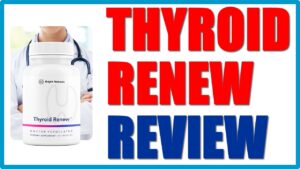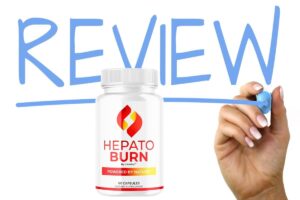
If you’ve recently taken antibiotics, you might be wondering how to restore your gut health. Antibiotics can disrupt your gut’s natural balance, leading to various issues. Fortunately, there are effective ways to support your recovery. By understanding the role of probiotics and incorporating gut-friendly foods into your diet, you can set the stage for healing. But what specific steps should you take to ensure a smooth recovery?
Understanding the Impact of Antibiotics on Gut Health
When you take antibiotics, they don’t just target harmful bacteria; they can also disrupt the balance of good bacteria in your gut.
This imbalance can lead to various digestive issues, such as bloating, diarrhea, and even increased susceptibility to infections. Antibiotics can wipe out beneficial microbes that assist in digestion and support your immune system.
As these good bacteria diminish, you might notice changes in your overall health and well-being. It’s crucial to recognize that while antibiotics serve an essential purpose, they can have unintended consequences for your gut health.
Understanding this impact helps you prepare for recovery and make informed decisions about your health journey after antibiotic treatment. Taking proactive steps can significantly improve your gut health in the long run.
The Role of Probiotics in Gut Recovery
After antibiotics disrupt the balance of bacteria in your gut, probiotics can play a significant role in restoring that balance.
These beneficial bacteria help replenish the good microbes that antibiotics may have wiped out. Incorporating probiotics into your routine can enhance your gut health and support digestion. You can find them in various forms, like yogurt, kefir, or supplements.
When choosing a probiotic, look for strains like Lactobacillus or Bifidobacterium, known for their gut-repairing properties. It’s essential to start with a lower dose and gradually increase it to see how your body reacts.
Incorporating Gut-Friendly Foods Into Your Diet
Incorporating gut-friendly foods into your diet can significantly enhance your recovery after taking antibiotics.
Focus on adding fermented foods like yogurt, kefir, and sauerkraut, as they’re rich in probiotics that help restore your gut’s natural balance.
Include prebiotic foods such as garlic, onions, and bananas, which nourish beneficial gut bacteria.
Leafy greens and colorful vegetables provide essential vitamins and minerals, supporting overall health.
Whole grains like oats and quinoa offer fiber, promoting digestion.
Don’t forget healthy fats from sources like avocados and olive oil, which can help reduce inflammation.
The Importance of Hydration and Fiber
To support your gut recovery, hydration and fiber play vital roles. Staying well-hydrated helps your digestive system function properly, allowing nutrients to be absorbed effectively. Aim to drink plenty of water throughout the day, as this can help flush out toxins and prevent constipation.
Fiber is equally important; it acts as a prebiotic, feeding the good bacteria in your gut. Incorporate fiber-rich foods like fruits, vegetables, whole grains, and legumes into your meals.
These foods not only promote regular bowel movements but also contribute to a balanced microbiome.
Lifestyle Changes to Support Gut Healing
While you focus on rebuilding your gut health, making specific lifestyle changes can significantly enhance your recovery.
Start by prioritizing whole foods like fruits, vegetables, and fermented products, which nourish your gut microbiome. Aim to reduce processed foods, added sugars, and unhealthy fats, as they can hinder healing.
Regular physical activity is vital too; it boosts circulation and supports digestion. Make sleep a priority—getting enough rest helps your body repair itself.
Additionally, manage stress through practices like meditation or yoga, as stress can negatively impact gut health.
Finally, consider keeping a food diary to identify what works for you. These lifestyle adjustments can create a strong foundation for your gut healing journey.
Supplements to Consider for Gut Repair
As you work on healing your gut, considering certain supplements can be beneficial for restoring balance.
Probiotics are a top choice, as they introduce beneficial bacteria back into your system. Look for a high-quality, multi-strain probiotic to maximize effects.
Prebiotics, like inulin or fructooligosaccharides, can also support gut health by feeding those good bacteria.
L-glutamine is another supplement you might find helpful; it’s an amino acid that aids in repairing the intestinal lining.
Omega-3 fatty acids can reduce inflammation, promoting overall gut health.
Lastly, digestive enzymes can assist in breaking down food, making it easier for your gut to absorb nutrients.
Always consult with a healthcare professional before starting new supplements to ensure they’re right for you.
Monitoring Your Progress and Adjusting Your Approach
Once you’ve incorporated supplements to support your gut repair, it’s important to monitor your progress and adjust your approach as needed.
Keep track of how you feel physically and emotionally. Note any changes in digestion, energy levels, or mood. Consider maintaining a journal to document your symptoms and the foods you eat. This can help identify patterns or triggers.
If you notice persistent issues, it might be time to tweak your supplement routine or dietary choices. Consult with a healthcare professional to ensure your plan aligns with your individual needs.
Conclusion
In conclusion, repairing your gut after antibiotics is essential for your overall health. By incorporating probiotics through fermented foods, focusing on prebiotic-rich options, and maintaining a fiber-filled diet, you can support your gut’s recovery. Remember to stay hydrated and make lifestyle changes that promote healing. Consider supplements to boost your efforts, and keep track of your progress to ensure you’re on the right path. Your gut health will thank you for the care you provide!




